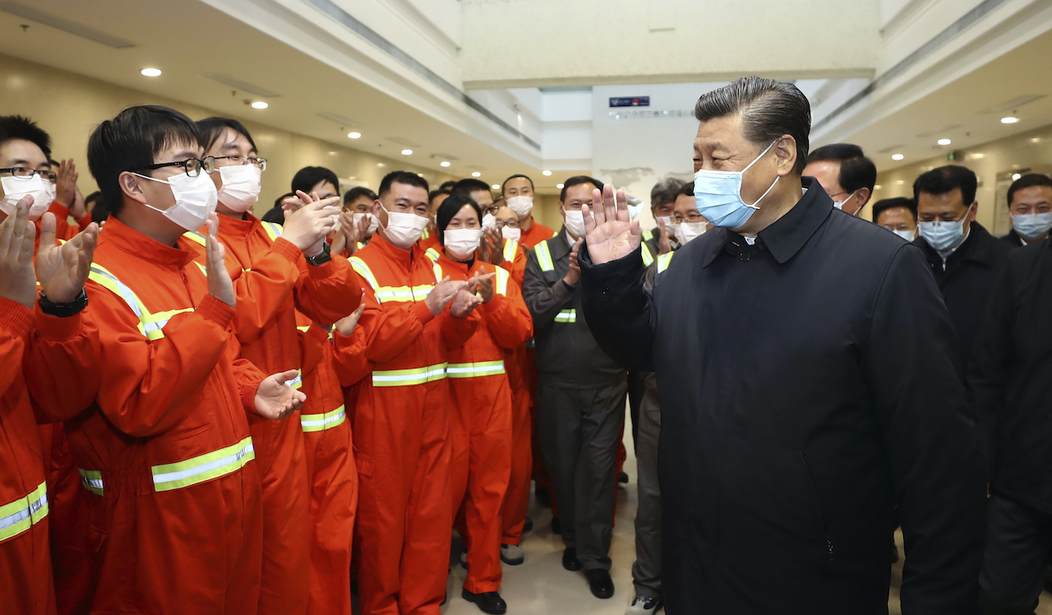In the coming days, Reps. John Garamendi (D-CA) and Vicky Hartzler (R-MO) are expected to introduce an amendment to the must-pass National Defense Authorization Act. The amendment, if approved, will likely ban the Departments of Defense and Veterans Affairs from purchasing medicines, vaccines, and medical ingredients from overseas suppliers. The goal, of course, is to reduce America's reliance on imports -- especially from China -- and spur more domestic manufacturing.
Those are worthy objectives. Communist China poses an existential threat to America's global leadership. But the amendment -- though offered with the best of intentions -- could disrupt the military's access to medicines. There's a better way to accomplish lawmakers' goals.
The coronavirus pandemic has highlighted some vulnerabilities in America's medical supply chains. We've discovered just how dependent we are on masks, ventilators, and even medicines produced elsewhere -- both in allied countries like India and Ireland as well as rivals like China.
But reducing our reliance on other countries isn't an overnight process.
Today, about 70 percent of the medicines that Americans take are manufactured here in the United States. However, the chemicals, or "active pharmaceutical ingredients," used to make these drugs are often sourced from abroad.
Just 28 percent of the facilities that produce these APIs are located on American soil. This isn't to say the rest is coming from unsavory nations. A full 26 percent of the facilities that produce APIs are in the EU. Another ally, India, houses 18 percent of such facilities, and Canada is home to 2 percent.
Re-shoring API manufacturing won't be quick or cheap. In terms of capital investments, by some estimates, it can take a decade and cost $2 billion to build a new API factory in the United States.
Recommended
Training a labor force for advanced manufacturing will be equally challenging. America will need a lot more graduates in STEM education -- science, technology, engineering in math. By one count from The World Economic Forum, in 2016 China had 4.7 million recent graduates in STEM fields, while the United States had a comparatively paltry 568,000.
So do these challenges mean we should do nothing? Of course not. China hosts 13 percent of API facilities that make American medicines. That's not the 80 percent figure that's sometimes misleadingly cited in the media. But it is sizable – and sourcing APIs from China is a strategic vulnerability that policymakers should work to reduce or eliminate.
However, if our goal is to decouple from China, we don't need a blunt-force instrument like a Buy American amendment, which would upend supply chains and trading relationships with our allies as well as our adversaries. Instead, we ought to laser-focus on China.
Fortunately, we've already started to do so. President Trump recently signed the CARES Act, which commissioned a report to find out exactly which drugs we typically source from China. Ascertaining this information will help the administration carefully plan its next steps.
Lawmakers, meanwhile, can do their part by incentivizing companies to build pharmaceutical manufacturing facilities in America. Other countries already do this. China subsidizes up to 150 percent of a company's new R&D investments. Allies like Singapore give firms that make high tech products on the island five to 15 years of tax exemptions. Ireland, meanwhile, is famous for its extremely low 12.5 percent corporate tax rate, and also gives firms a 25 percent tax credit on research and development expenditures.
Other nations recognize that robust high-tech manufacturing sectors aren't the product of random luck -- they're the result of deliberate government policies and incentives.
It's time for our leaders to learn that same lesson and plan accordingly. Congress could offer targeted tax incentives or credits to boost domestic medical manufacturing. Our trade officials, meanwhile, could take a close look at whether super-subsidies like China's 150 percent R&D handout violate global free-trade rules.
The Manufacturing Institute, a workforce training partner to the National Association of Manufacturers, suggests a new workforce training program – with $10 billion budgeted – to teach advanced manufacturing skills.
Reps. Hartzler and Garamendi's Buy American mandate is well-intentioned -- but there's a smarter way to boost U.S. manufacturing capabilities and reduce our reliance on China. Ordering the Departments of Defense and Veterans Affairs to upend their supply chains would merely impede the military's ability to provide quality healthcare to veterans and current troops.
Paul E. Vallely is a retired U.S. Army major general who serves as a senior military analyst for Fox News. Gen. Vallely is the founder and chairman of Stand Up America.

























Join the conversation as a VIP Member